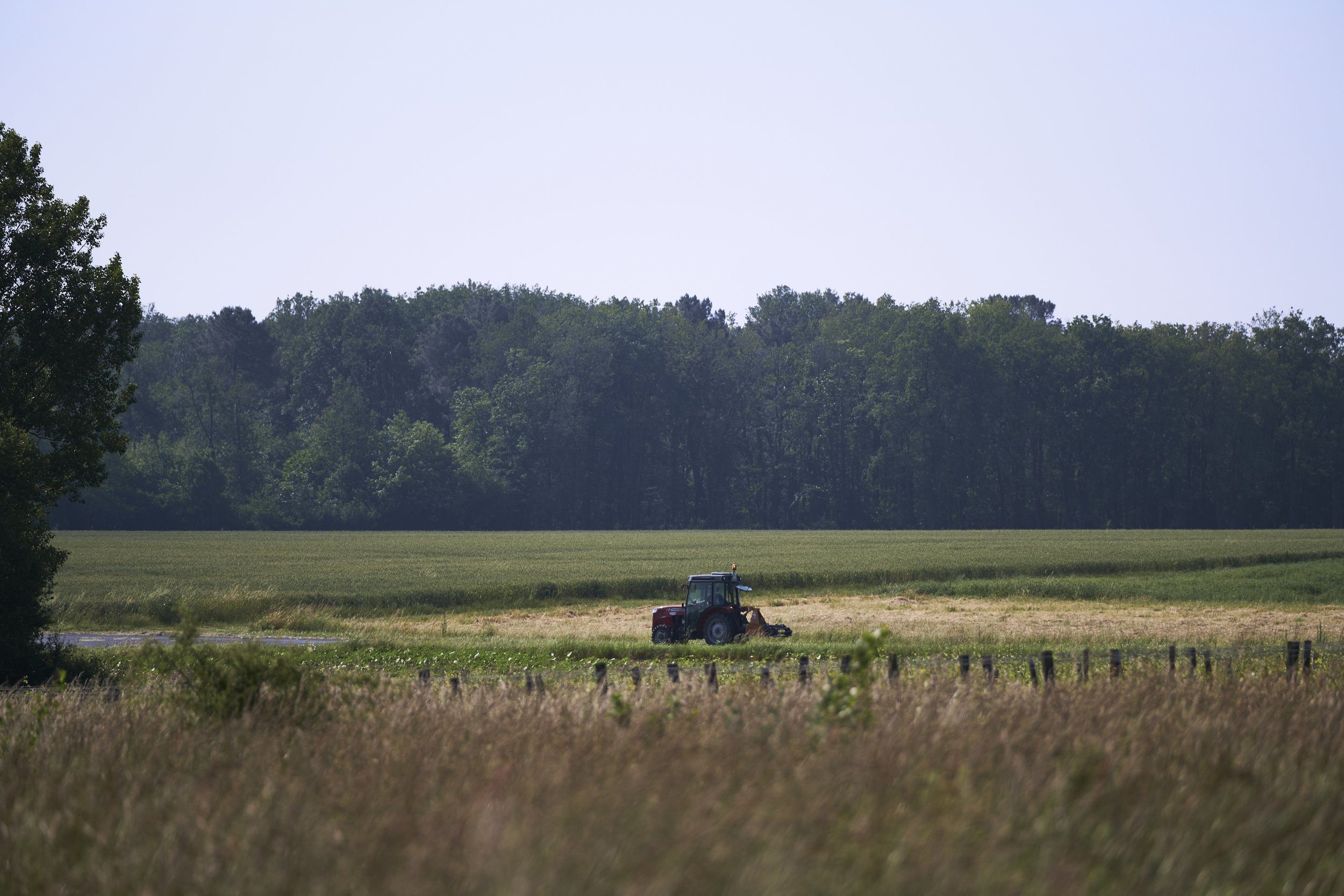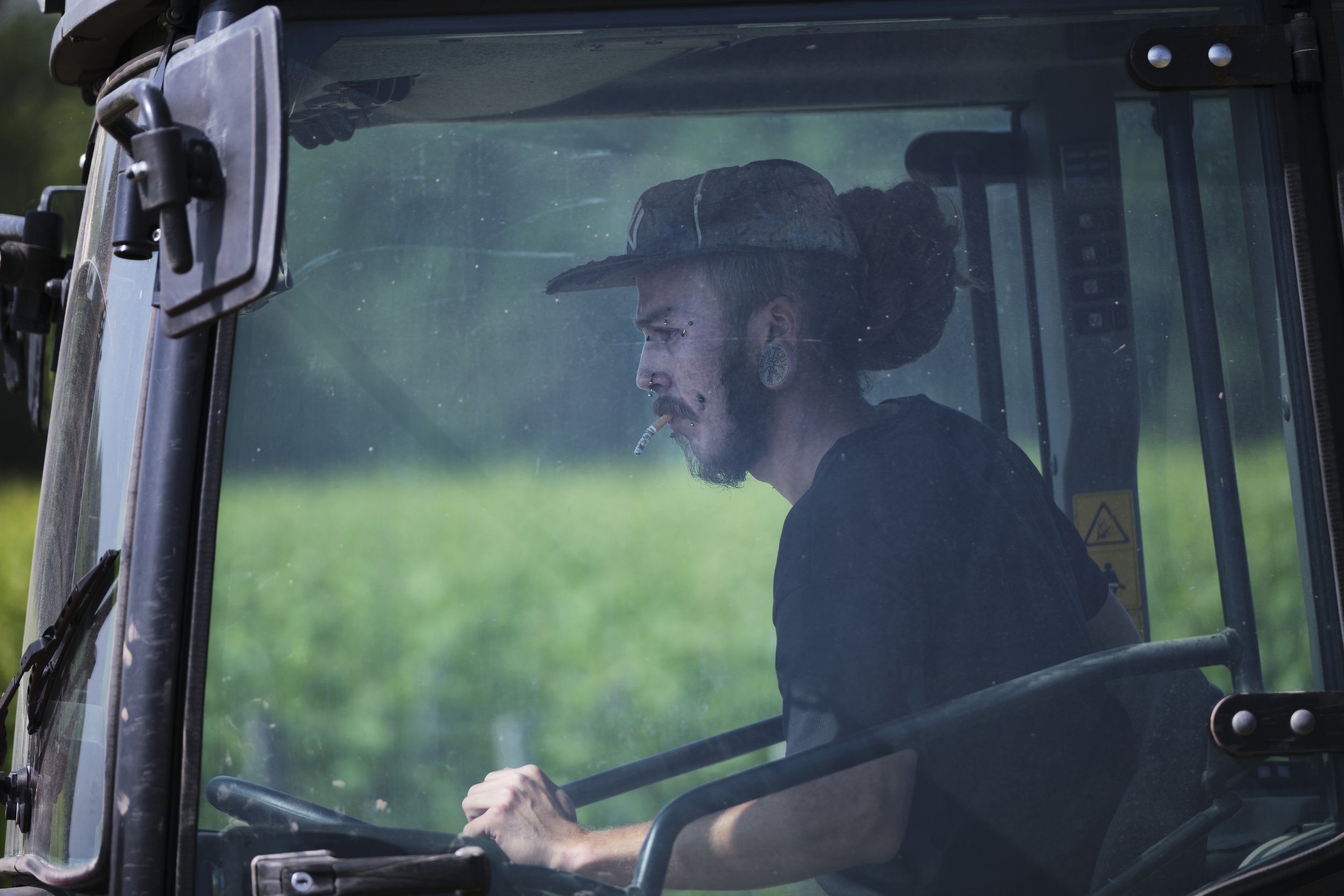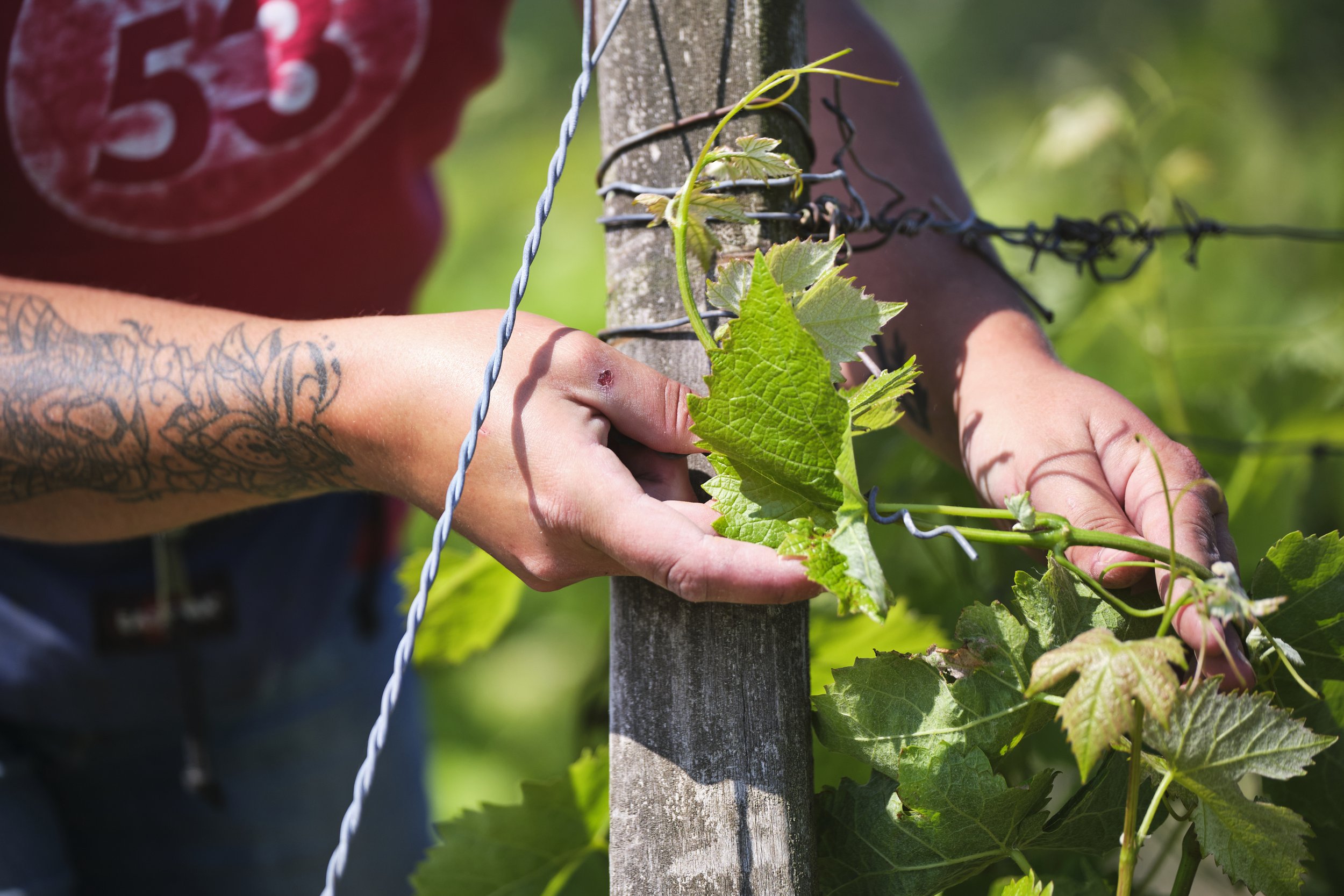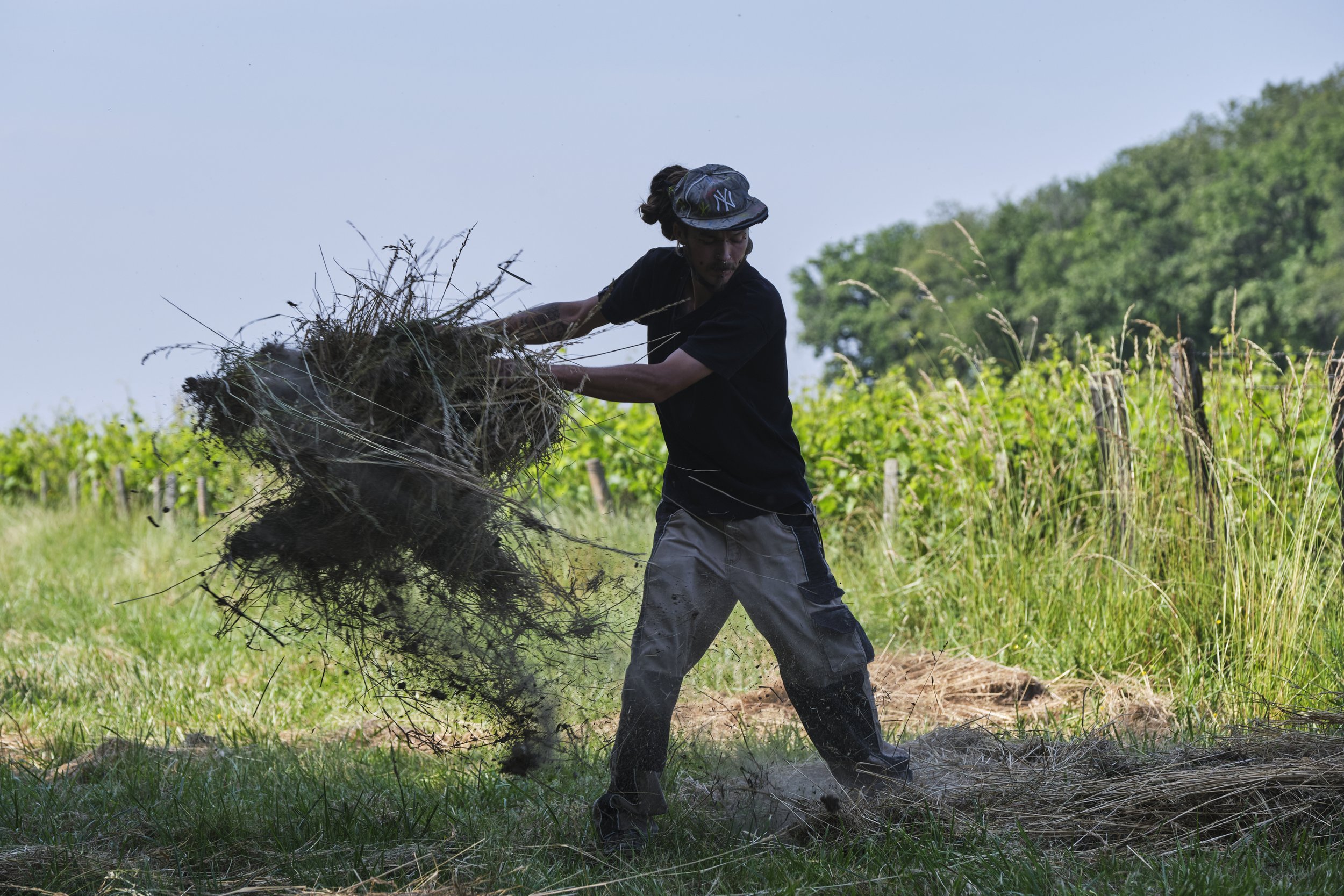
une bouteille de vin de table
In June 2023, I had the opportunity to spend the morning out in the vineyards with Axel and Marine, a couple of young winemakers from the Loire region of France. Even though I knew (and know) very little about wine, my time in France taught me just how intrinsic wine is to France and French culture, and so I was really excited to get the chance to learn about the challenges of being small, artisanal and organic winemakers, and the challenges facing winemaking at large. If you are in the Loire Valley area and would like to support their work, please feel free to check out their page here.
Even discounting the Vegvisir Wayfinder Coin earlobes or the facial piercings, I don’t think Axel and Marine would object to me saying that that neither of them are what one imagines as “traditional” French winemakers. Unlike many of their peers, neither of them come from families in winemaking or agriculture (as most artisan winemakers/farmers would). In fact, when I met them, they had just started with only their second season of making their own wine, making them “babies” in this world.
Both Axel and Marine found themselves involved in wine almost incidentally. Even having finished his university studies, Axel knew he did not want to spend 8 hours a day behind a desk, longing to be outdoors instead. He signed up for a vine pruning course on a whim, and has now been involved with winemaking for a decade. Similarly, Marine graduated with a masters degree in archaeology, but unable to find related work, she went back to school to learn about viticulture. The pair of them, having worked on other people’s vineyards for years, were eventually given an opportunity to take over a small organic plot by a former teacher of Marine’s, which is the land that they work today.


Speaking to Axel, he laments to me about the state of French society. He claims that there everything is designed to push you towards going to university, and that there is a complete lack of emphasis on vocational training or skills. He tells me that the only exposure many French students have to these skills is one week when they are 14. It is no surprise to him then that the “peasantry” has shrunk dramatically over the past 50 years or so. Even though France has some of the best viticulture schools in the world, the schools are not well promoted, and thus always have too few students.
Axel tells me that he believes not enough people have the courage to follow their true passions and ambitions, and that an narrowing view of success has led to an increasingly materialistic lifestyle, and a general discontentment with life. As someone who has spent his entire life in Asia, what he said completely resonated with me.
Make no mistake though, winemaking is a hard life, and it is certainly not for everyone. Beyond the labour intensive process (much of which still needs to be done by hand), it is also a world with much uncertainty. Whether it is too much or too little rain, sun or frost, or increasingly frequent extreme weather events like hailstorms, bad weather may lead to an entire year’s worth of labour going down the drain in a single morning. This is made even more difficult when growing vines organically, as Axel and Marine have chosen to do. While growing organically makes the process much more labour intensive, and with many fewer tools to protect the plants against inclement weather or pests, Axel and Marine insist that it is much better for the soil in the long run, but more importantly that there is a noticeable difference in taste.
From my (uneducated) perspective, like in many other things, there seems to be an increasing divide within French winemaking. On one hand, you’ve got your name brand wines being mass produced and exported for consumption all over the world. These are known as your “Appellation d’Origine Contrôlée” (AOC) wines, which have very particular standards and criteria, and the wines you’d break out for a special occasion. On the other, you have your small, artisan winemakers, much like Axel and Marine, who are making vin de table (table wine) - the type of wine one might have on a daily basis, served with a simple, rustic meal. One of these types of wine gets all the governmental support and is promoted as a bastion of French culture, while the other is a slowly dying craft, with a decreasing amount of both land and farmers dedicated to it. I’m sure you can guess which is which.


From climate change to decreasing consumption to the increasing conglomeration of the winemaking industry, small winemakers seem to have an endless number of challenges. Speaking to Axel and Marine, I’ll admit that at times I wondered how they were managing to make it work, and how they find the willpower to carry on in an industry so stacked against them. Thinking about it more though, it made me realise that their story is one that transcends across both time and space. Whether in France or in Singapore, the idea of pursuing one’s passion, regardless of societal norms or whatever other challenges, is something worth doing. And to that, I wish them well.





